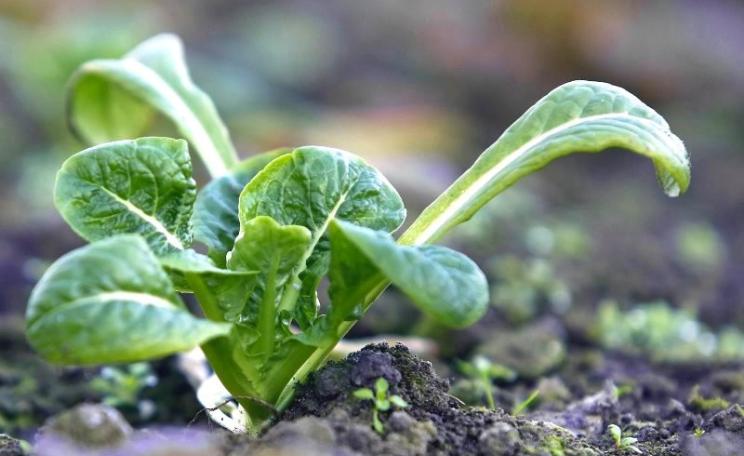Is a 'post-meat' world possible? Could we manage a transition to a society where farmed animals are liberated and granted equal status, free to live equally among humans?
Will our grandchildren look back, 50 years from now, at a time when human beings ate other animals as one in which their grandparents were "complicit in a bloodbath of unnecessary suffering", a horror show of unremitting violence that is "wholly unimaginable" to them?
That's the intriguing premise of Carnage, a new feature-length BBC film which depicts a 2067 utopia where humans no longer raise animals for consumption. ![]()
Carnage is a mockumentary, written and directed by comedian Simon Amstell, but let's contemplate its premise seriously for a moment. Is a 'post-meat' world possible? Could we manage a transition to a society where farmed animals are liberated and granted equal status, free to live equally among humans?
There are some good reasons why this is an unlikely vision of the future. For a start, the number of animals slaughtered globally is on the increase. Although this includes hunting, poaching, and unwanted pets, by far the biggest point of interaction between humans and other animals is industrial farming.
The statistics are staggering: at least 55 billion animals are killed by the global farming industry each year, and this figure is growing every year. Despite marketing tales of animal welfare and 'happy meat', factory farming means violence, discomfort and suffering on an enormous scale.
This is why Yuval Noah Harari, the author of Sapiens, a history of the human race, calls our treatment of domesticated animals in industrial farms "perhaps the worst crime in history".
Never mind the meat - just keep the blood off my plate!
If we turn to consumers' willingness to eat meat, psychological research in this area appears to cast further doubt on the utopian vision of Carnage. Most people who eat meat express concern in relation to animal welfare, and experience unease when the death or discomfort of animals is associated with the meat on their plate.
Psychologists refer to this tension between beliefs and behaviour as 'cognitive dissonance'. We want to reduce the discomfort of such dissonance, but human nature means we often seek the easiest ways of doing so.
Is a 'post-meat' world possible? Could we manage a transition to a society where farmed animals are liberated and granted equal status, free to live equally among humans?
So rather than changing behaviour, we change our thinking, and develop strategies like minimising the harm of the offending behaviour (animals don't have the capacity to suffer like we do; they do not matter; they have a good life); or denying one's responsibility for it (I am doing what everyone does; it is necessary; I was made to eat meat - it is natural).
Dissonance-reduction strategies often lead, paradoxically, to an increase in commitment to 'morally troublesome behaviour' such as eating meat, to justify them. We then have to work harder to reduce dissonance, creating the need to defend one's behaviour even more vigorously.
This commitment becomes habitual, and part of our shared routines, traditions and social norms. It's a circular process that can end up with exaggerated and socially-polarised views, reflected perhaps in familiar attempts to publicly ridicule veganism. On this reading of the psychology research, change on the scale envisioned by Carnage seems unlikely.
The path to a world without meat
There are grounds for optimism, however. A first challenge comes from growing health concerns related to eating meat, and an accompanying lifestyle movement that embraces a 'plant-based diet'. Meat substitutes are also becoming increasingly sophisticated, as the tech industry recognises the potential market value of alternative protein sources.
This is matched by a resurgent concern for the welfare of nonhuman animals more generally. Examples include successful campaigns against captive orca whales and circus animals, the widespread questioning of the purpose of zoos, and a burgeoning legal movement defending the rights of animals in court.
This trend is strengthened by growing recognition of the emotional, cognitive and social complexity of nonhuman animals.
What might be the biggest factor of all, however, is the impact on the climate. Meat is an inefficient use of resources (as farm animals eat food that could go straight to humans), while cows famously fart out lots of methane.
The UN says the large-scale industrial farming of animals is one of "the top two or three most significant contributors to the most serious environmental problems, at every scale from local to global." A global reduction in meat consumption is one of the best ways to fight climate change. And, as pressure for resources rise, so too might cost, leading to less meat eating.
After half a century, could it be possible?
Taken in isolation, none of these trends suggests social change on the scale Carnage imagines. But together, they just might. It is a combination that could explain significant growth in the number of vegetarians and vegans for example.
This increase is especially marked among younger people - an important point to consider in relation to our imagined 50-year trajectory. And let's face it, the need to do anything we can to collectively reduce carbon emissions and alleviate the worst effects of climate change is only going to become more pressing as we approach 2067.
The German government seems to have recognised this, recently banning meat from all official functions for environmental reasons. These trends suggest the interlocking psychological, social and cultural dynamics that keep us habitually and routinely eating meat might be beginning to loosen.
Films like Carnage also contribute to this unravelling, opening up our imagination to alternative futures. If you watch it, I hope it raises a few laughs, but also offers some (plant-based) food for thought.
Watch Carnage here.
Matthew Adams is Principal Lecturer in Psychology, University of Brighton.
This article was originally published on The Conversation. Read the original article.






